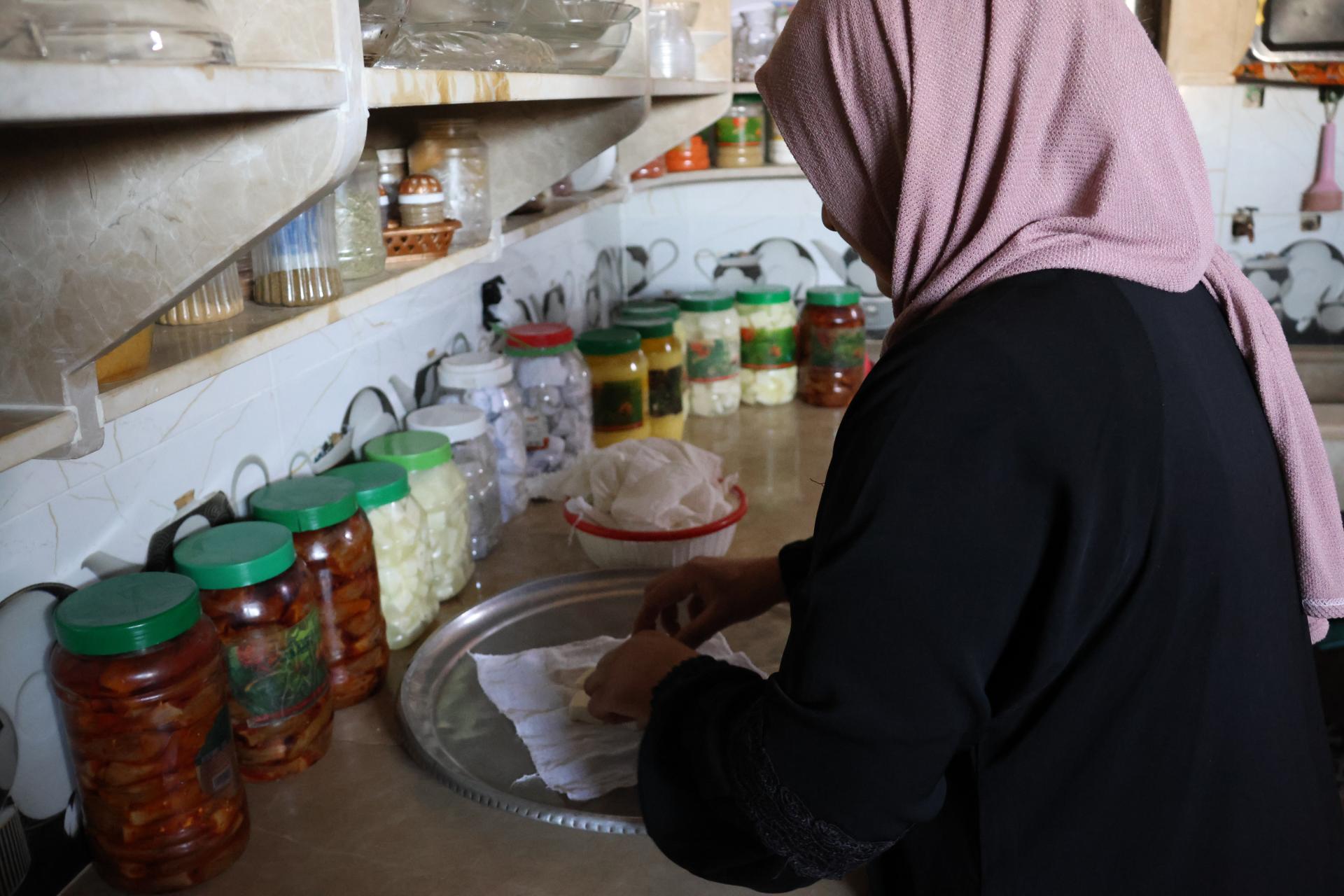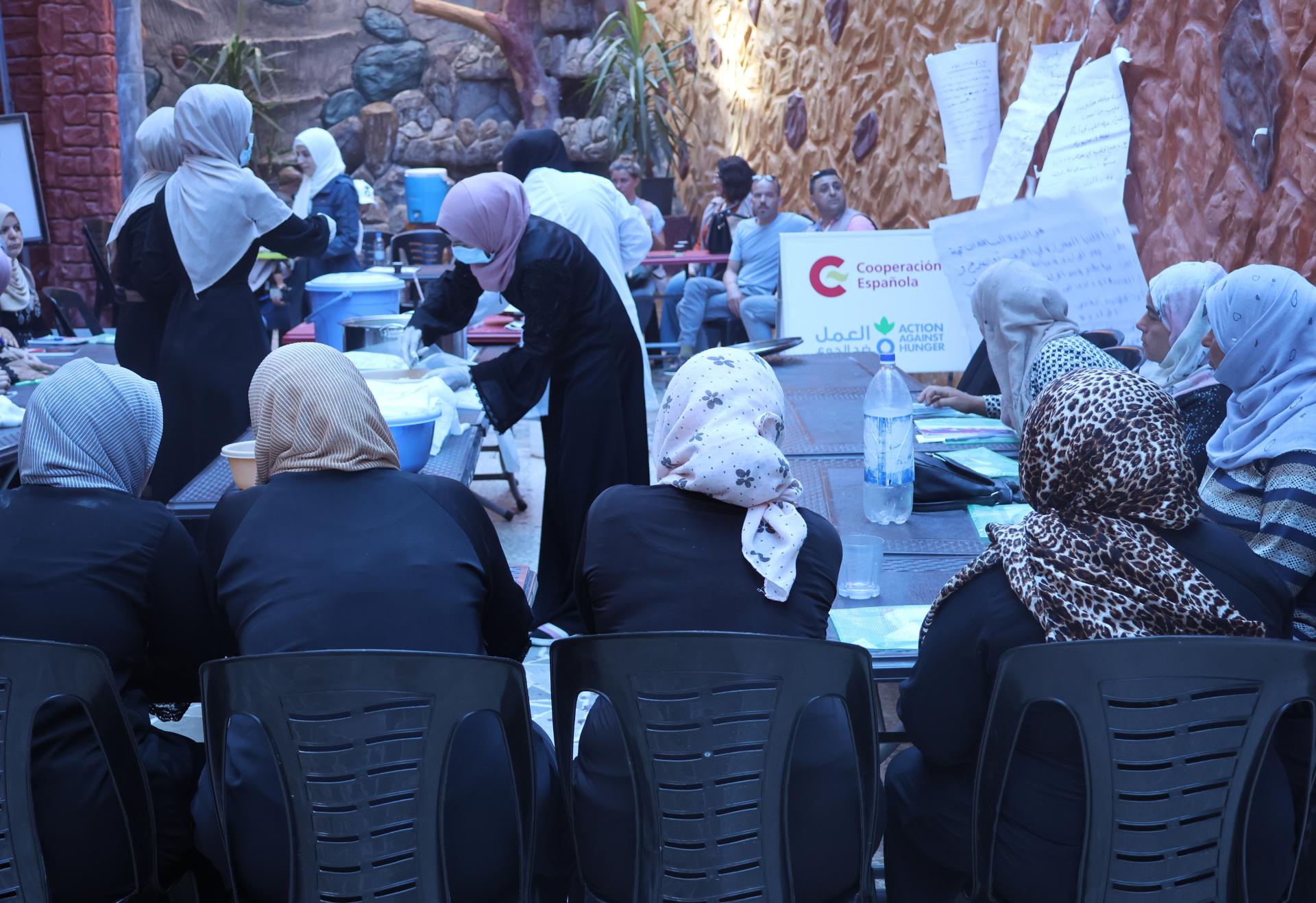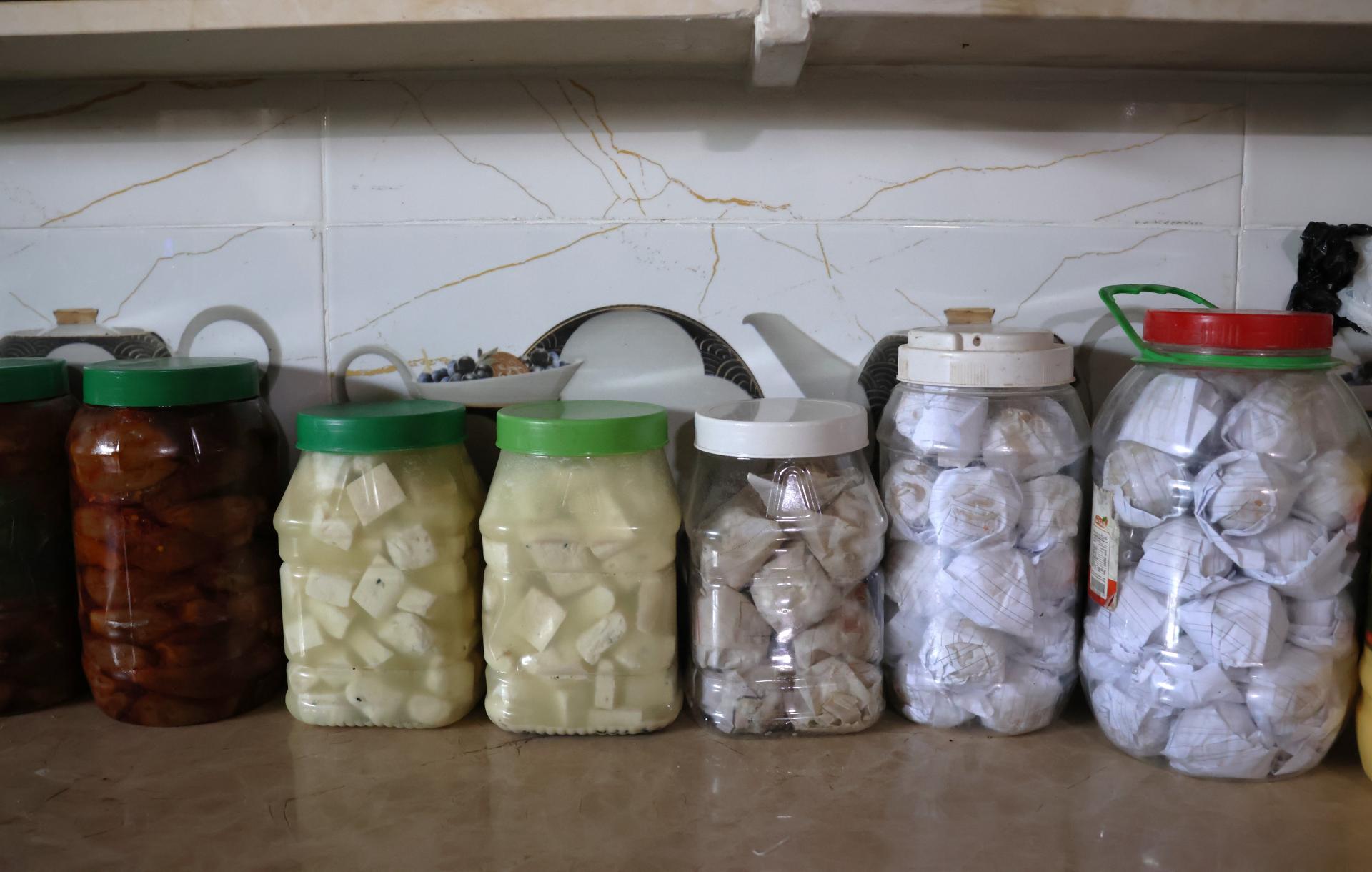

OPPORTUNITY AND DETERMINATION CAN EMPOWER SYRIAN WOMEN TO BUILD BRIGHTER FUTURES FOR THEMSELVES AND THEIR FAMILIES
Ola is 37 years old, married, and a mother of four, three boys and one girl. In 2012, her family was forced to leave their village due to clashes. They remained displaced for eight years. They finally returned home in 2020 and began to rebuild their lives from scratch.
Their house had been damaged, but they managed to repair it. The family only owned a few sheep, which Ola’s husband took care of. He fed them and let them graze when grass was available. The sheep were their only source of income.
I used to milk the sheep and sell the milk directly to the milkman,” Ola said. “I didn’t have any equipment, no milk churner or tools to make any dairy products. Selling raw milk was our only source of income, and we made very little money.
Ola had some basic knowledge about making food, but it was difficult. “When I tried boiling milk to coagulate it, it would often curdle and I would throw it away, because I thought it had spoiled. I didn’t know it could be turned into cheese with just a few simple ingredients. Even when I made pickles at home, they would sometimes spoil or turn out too salty because I didn’t know the correct measurements.”

Everything changed when Action Against Hunger, with support from AECID, started a training program in Ola’s village. The program helped women learn food processing skills, how to make cheese, pickles, jam, and more.
“The training taught us a lot,” said Ola. “We learned how to properly measure ingredients, keep food clean and safe, and make the most of what we have at home. I realized I could still use curdled milk and turn it into cheese by adding just a few simple ingredients.”
After the training, Ola received a small grant to purchase the tools she needed. She bought a milk churner, pots, bowls, strainers, milk buckets, cheesecloth, and a gas cylinder.
“I was so excited to start. I began making pickles and jams right away. But I couldn’t make dairy products yet because there was not enough milk, the season was delayed due to a lack of rain, and our animals didn’t have enough grass to eat. We had to buy feed, which added a financial burden.”
Ola kept going. Now, she works from home, maintains her role as a mother and a caregiver, has become economically active, and runs her small business. “My children go to school in the morning, and I start my work full of energy and joy. I don’t have to sell raw milk cheaply anymore. I can make my own products. My relatives often visit me to taste my goods and sit with me.” Her neighbors love her products and purchase them directly from her home. “They trust my products because they know where they come from and how clean they are.”

“I encourage all women to build themselves up, to believe in their work, and in the success of their ideas.”
Grateful and hopeful, Ola concluded: “I deeply thank Action Against Hunger, AECID, and everyone who contributed to this activity. Without their support, I would still be selling milk at a low price, with no growth or independence. I hope to expand my project even more. But one challenge remains: the lack of electricity. I need a fridge to keep my products fresh longer. Having access to solar energy would make a huge difference for me.”
